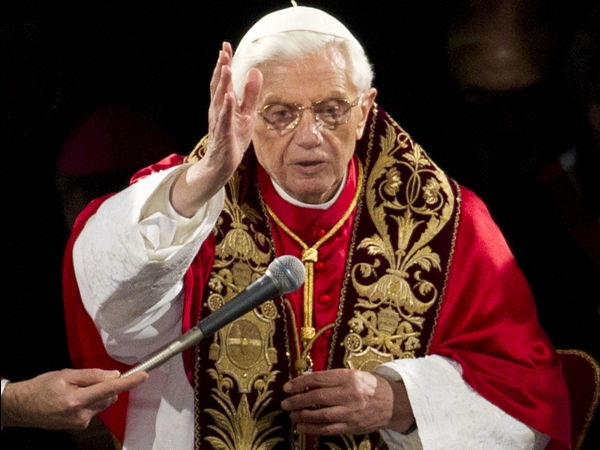Our ability to recognize the Risen Lord through His Word and in the Eucharist was the focus of Pope Benedict XVI’s Regina Caeli reflections this third Sunday of Easter. Speaking in French he said in the same way the Risen Jesus appeared among the apostles, still today “the Savior assures us of his real presence among us through the Word and the Eucharist” and just as “He gave peace “to the disciples, “He is still gifting us His peace and opens up life to happiness and invites us to become His witnesses to the ends of the earth, in our world marked by evil and suffering, pain and fear”.
St Peter’s Square, below the Pope’s study window was packed, mainly with young children from parishes across the diocese of Rome, who are preparing for their First Communion. They had gathered beneath his balcony early Sunday morning, animating the build up to the midday appointment with the Holy Father with song, adding splashes of color to square with bunches of balloons. And they were not disappointed. Speaking to them directly before the recitation of the Regina Caeli, which replaces the Angelus during the period between Easter and Pentecost, Pope Benedict urged “parish priests, parents and catechists to prepare this feast of faith, with great fervor, but with sobriety.” This day is to be memorable as the moment when … you too understand the importance of a personal encounter with Jesus”.
Referring to the Sunday Gospel, Luke chapter 24, Pope Benedict said “the Saviour assures us of his real presence among us through the Word and the Eucharist. Therefore, just as the disciples of Emmaus recognized Jesus in the breaking of the bread (cf. Lk 24:35), so we meet the Lord in the Eucharistic celebration”. Quoting St. Thomas Aquinas he said ” It is absolutely necessary to confess according to Catholic faith that the entire Christ is in this sacrament…. since the Godhead never set aside the assumed body”.
Finally the Pope prayed that the Mother of God help us to listen attentively to the Word of the Lord and participate worthily in the Eucharistic Sacrifice,” to become witnesses of the new humanity”.
L





